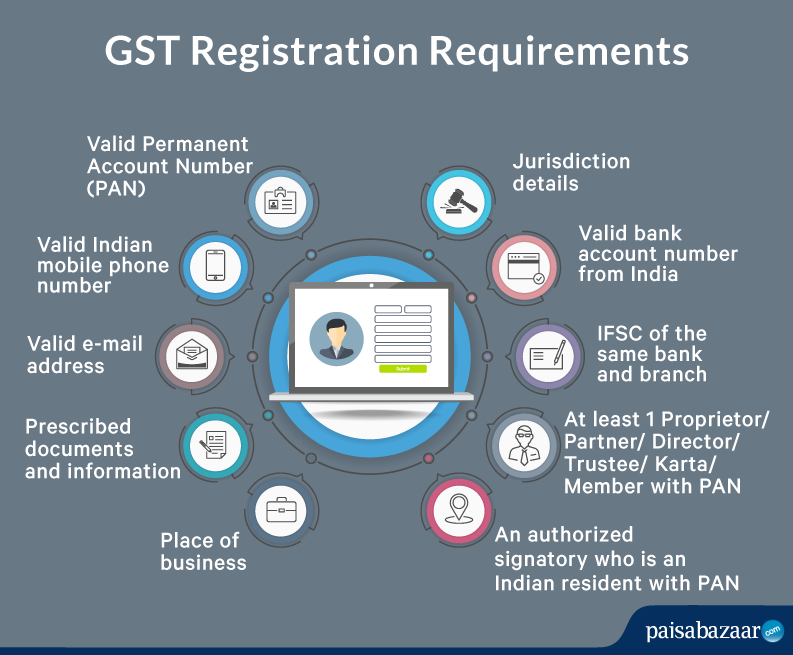Throughout: A Thorough Introduction of GST Registration and Exactly How to Successfully Register Your Service
Navigating with the intricate process of GST enrollment can be a crucial action for any kind of company aiming to develop conformity and authenticity on the market. Why choose CFO Account & Services for GST registration in Singapore. From recognizing the fundamental ideas of GST to satisfying the qualification criteria and collecting the essential paperwork, the trip towards effective enrollment can typically look like an overwhelming task. However, with the ideal advice and understandings, companies can enhance this procedure and unlock the benefits that include being a signed up entity.
Recognizing GST and Its Importance
Recognizing the Product and Solutions Tax (GST) and its significance is essential for organizations running in economic climates where this taxation system is executed. By enabling businesses to assert input tax credit histories on the tax obligation paid on acquisitions, GST makes certain that tax obligations are computed only on the value included at each phase of the supply chain.
In addition, GST promotes conformity and transparency in the tax routine, minimizing tax evasion and raising government revenue. It streamlines tax management and compliance for organizations by offering a typical platform for tax obligation filing and settlement. In general, an extensive understanding of GST is important for businesses to successfully browse the complexities of the tax obligation system and make certain conformity with the regulation.
Eligibility Standards for GST Registration
To sign up for GST, services should fulfill specific eligibility standards outlined by the tax obligation authorities. The main need for GST registration is that the service's accumulated turn over exceeds the threshold set by the federal government, which differs by state. As of the existing guidelines, organizations with an annual turnover of Rs. 40 lakhs or even more in the majority of states have to sign up for GST. However, for companies running in hilly areas and northeastern states, the limit is Rs. 20 lakhs. Additionally, certain companies, such as those involved in inter-state supply of services or items, casual taxed individuals, and non-resident taxed individuals, are required to register for GST despite their turnover.
Moreover, businesses entailed in supplying products or services through shopping systems are likewise mandated to register for GST, irrespective of their turn over. Companies that were registered under the previous tax obligation regime, such as VAT, excise obligation, or solution tax, need to transition their enrollment to GST. Sticking to these qualification standards is important for businesses looking for to follow the GST laws and avoid any type of penalties for non-compliance.
Papers Needed for GST Enrollment
Moreover, papers validating the identity and address of the partners or marketers associated with business, such as PAN card, Aadhaar card, or ticket, are essential for GST registration. Savings account statements or canceled cheques showing the name of the address, account, and organization number are also compulsory to confirm the checking account details supplied throughout enrollment.
Making certain all the essential papers are in order and readily offered will enhance the GST registration explanation procedure and assistance services prevent issues or delays.
Online Registration Refine for GST

After completing the kind, sustaining records require to be uploaded based on the guidelines given. These files generally consist of evidence of service registration, address evidence, bank statements, and identity evidence of the service proprietor. It is necessary to guarantee that all records are clear, valid, and uploaded in the defined layout to prevent hold-ups in the registration process.
As soon as the application and papers are sent, businesses can track the condition of their GST enrollment online. If there are no issues or added information called for, the GST registration certificate will certainly be issued electronically, noting the effective completion of the online enrollment process.
Post-Registration Conformity and Tips

In addition, companies need to preserve appropriate publications of accounts, consisting of invoices, bookkeeping records, and financial statements, to sustain the details supplied in GST returns. Routine audits and settlements must be carried out to make sure information precision and compliance with GST legislations. Moreover, services ought to stay updated on any changes in GST regulations, rates, or conformity treatments to make necessary modifications quickly. Seeking specialist assistance from tax obligation experts or accountants can also aid services navigate intricate GST compliance needs efficiently. By remaining vigilant and aggressive in post-registration compliance, organizations can prevent charges, preserve excellent standing with tax authorities, and foster functional effectiveness.
Conclusion
Finally, the process of GST registration is essential for businesses to adhere to tax laws and operate lawfully. By recognizing the qualification criteria, gathering the essential documents, and completing the on the internet registration procedure, companies can efficiently sign up for GST. It is essential to a knockout post stay compliant with post-registration demands and seek expert support when required to ensure smooth operations.
Companies that were registered under the previous tax program, such as VAT, excise responsibility, or service tax, need to shift their enrollment to GST. The crucial records needed for GST registration include proof of company registration or incorporation such as the Certification of Incorporation, collaboration deed, or registration certificate.Upon successful conclusion of the GST enrollment procedure, services must immediately stick to post-registration conformity requirements to maintain regulatory conformity and make certain smooth procedures.In final thought, the process of GST registration is important for companies to conform with tax obligation policies and operate legally. By recognizing the eligibility standards, gathering the needed papers, and completing the online enrollment process, businesses can efficiently register for GST.
Comments on “CFO Account & Services: Your Relied On Companion for Hassle-Free GST Registration in Singapore”